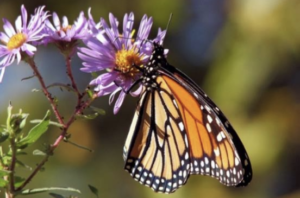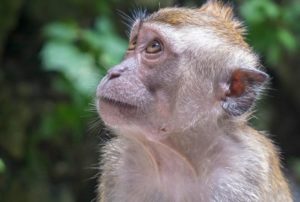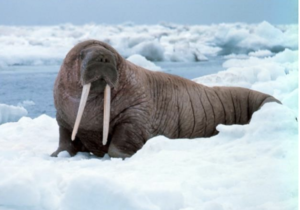The second semester of the Animal Law & Policy Clinic got off to an exciting and topical start!
 On behalf of the National Butterfly Association and National Butterfly Center in Texas, we filed an amicus brief before the United States Supreme Court in support of a petition for certiorari by the Center for Biological Diversity, Animal Legal Defense Fund, Defenders of Wildlife, and Southwest Environmental Law Center asking the Court to review a lower court decision concerning the constitutionality of the Trump Administration’s waivers of all environmental laws that would ordinarily apply to construction of the Border Wall between Mexico and the United States.
On behalf of the National Butterfly Association and National Butterfly Center in Texas, we filed an amicus brief before the United States Supreme Court in support of a petition for certiorari by the Center for Biological Diversity, Animal Legal Defense Fund, Defenders of Wildlife, and Southwest Environmental Law Center asking the Court to review a lower court decision concerning the constitutionality of the Trump Administration’s waivers of all environmental laws that would ordinarily apply to construction of the Border Wall between Mexico and the United States.
The amicus brief argued that cert should be granted because the statute authorizing the waivers violates Separation of Powers principles by giving an unelected official of the Executive Branch authority that should only be exercised by the Legislature, and because the disregard of all environmental laws will have devastating impacts on butterflies and many other wildlife species that depend on this habitat for survival. Unfortunately, the Supreme Court declined to grant cert this summer (the Court takes less than 3% of all cert petitions). The Petition was drafted by graduating student, Ashley Maiolatesi, with help from Clinic fellow Kate Barnekow.
We filed another cert petition with the Supreme Court on behalf of several individuals and the Hoosier Environmental Council challenging the constitutionality of Indiana’s Right to Farm Act, which eliminated the ability of homeowners to sue for any remedy when large industrial hog farms—or Concentrated Animal Feeding Operations (CAFOs)—are sited next to rural homes, resulting in noxious fumes and toxic particles invading the homes where families have lived for decades. That Petition, drafted by graduating student Boanne Wassink and third year student Andy Stawasz, asserts that the Indiana statute violates the Takings Clause of the Constitution because it deprives the families of the value of their property without any compensation. We anticipate having to draft a reply brief for this matter during Fall Semester 2020. You can read an exclusive in the Indianapolis Times.

On behalf of the New England AntiVivisection Society and Animal Legal Defense Fund, the Clinic filed a new lawsuit in federal district court in July challenging the United States Department of Agriculture’s denial of a Rulemaking Petition seeking better standards for the psychological well-being of primates used in research—a case that will now be litigated during the upcoming academic year. That case was prepared by Brett Richey and Rebecca Garverman, both rising 3Ls. You can read a copy of the Complaint, and The Boston Globe article about it.
In June, we sent a detailed letter to the USDA urging the agency not to establish new standards of identity that would ban the use of common or usual meat and poultry terms or product names specified in existing standards of identity (such as “beef”, “burger”, “chicken”, “sausage”, etc.), stating that such a ban would likely violate the First Amendment and its commercial speech protections. Recent Harvard Law School graduate Kelley McGill JD prepared the letter with Clinical Instructor Nicole Negowetti. The USDA has already announced that it plans to initiate rule-making, a lengthy public process for drafting any such new regulations, for labeling cell-based meat and poultry products.
The Clinic also filed a comprehensive Petition with the National Institute of Health’s Public Health Service in June, asking it to include cephalopods—i.e., octopus, squid, and cuttlefish—within the definition of “animal,” so that these animals will receive the minimum protection for “humane” handling and care required for all federally funded animal research. The Petition was submitted on behalf of the New England Anti-Vivisection Society, American Anti-Vivisection Society, Physicians Committee for Responsible Medicine, Humane Society of the United States, Humane Society Legislative Fund, and eight of the world’s leading scientific experts on cephalopods.
 In April, the Clinic filed an amicus brief in the Ninth Circuit Court of Appeals on behalf of six scientists in support of a case by the Center for Biological Diversity challenging the Trump Administration’s refusal to list the Pacific Walrus as “threatened” under the Endangered Species Act due to the deleterious effects of climate change on sea ice in the Arctic, upon which the Walrus depends for essentially all of its life functions. The brief was drafted by Rebecca Garverman and Kate Barnekow.
In April, the Clinic filed an amicus brief in the Ninth Circuit Court of Appeals on behalf of six scientists in support of a case by the Center for Biological Diversity challenging the Trump Administration’s refusal to list the Pacific Walrus as “threatened” under the Endangered Species Act due to the deleterious effects of climate change on sea ice in the Arctic, upon which the Walrus depends for essentially all of its life functions. The brief was drafted by Rebecca Garverman and Kate Barnekow.
The Clinic worked on many other important projects—several of which cannot be described in detail because of attorney-client privilege. In general, the projects involved continuing work on efforts to reduce the use of plastic due to its pervasive and adverse effects on wildlife; addressing the inhumane handling of poultry at slaughterhouses; curtailing hunting in certain jurisdictions; and advising organizations promoting alternative protein sources on strategic planning and other matters related to plant-based and cell-based foods.
It has been an extremely robust Semester, and the culmination of an industrious first year for the Clinic. Although our work has been somewhat disrupted by the current global pandemic, we are committed to continuing our on-going projects and launching several new ones as the Fall Semester begins. Although we will be working and teaching remotely this Fall, we have lots of exciting and important work to do! As always, the Animal Law & Policy Program team—Kristen Stilt, Chris Green, Sarah Pickering, Kate Barnekow, Ceallaigh Reddy, and Marina Apostol—have been amazingly supportive and inspiring. We could not do any of this work without them! We thank them and all of our dedicated and exceptional students for making this Semester, and the entire year, extremely rewarding.
Katherine Meyer, Clinic Director Nicole Negowetti, Clinical Instructor


